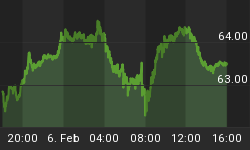With millions of homeowners now struggling to repay money they clearly never should have borrowed, our leaders have been righteously wagging fingers at predatory lenders who allegedly enticed innocent borrowers, and the country, into a financial snake pit. While the mortgage industry clearly deserves a good share of the blame, unindicted co-conspirators abound. The ringleaders are still at-large and are, in fact, busy hatching a plan to dwarf the earlier mistakes.
Contrary to the message bouncing off the marble walls of the Capitol, most borrowers in the inflating housing bubble clearly understood the terms of their loans. Most knew that they could not afford their mortgage payments once their teaser rates expired, but enthusiastically jumped into the debt pool anyway believing that guaranteed real estate appreciation, or a quick and profitable sale, would keep them afloat.
Although both lenders and borrowers were acting in their own perceived self-interest, what can we say of our economic policymakers who are expected to protect the good of all? Their actions encouraged the whole sad circus. Were it not for the excessively low interest rates provided by the Fed, the lax lending standards and moral hazards supplied by Congress courtesy of Freddie, Fannie, and the FHA, and the many real estate subsidies built into the tax code, none of these predatory loans would have been possible.
Had lenders exercised better judgment and had borrowers avoided overly burdensome debt loads, both parties would clearly be in better financial positions today. Instead, as borrowers were demanding the credit to fuel their dreams of instant real estate riches, lenders were being ordered to accommodate them.
In past generations, homebuyers were required to save for down payments and postpone their purchases until they could actually afford conventional 30-year fixed mortgages. But in recent years, as home ownership became a matter of public policy, the government accused lenders of discrimination and urged lower standards and easier terms. With government guarantees in place, the mortgage industry was happy to both expand their revenues and promote a better society.
But by denying credit, even if it requires borrowers to forgo something they clearly want, lenders not only provide a valuable service to borrowers, but to society. Given the mess in which we now find ourselves, due to the bad loans made during the real estate bubble, this lesson should have been well learned. Unfortunately it hasn't, as the same dynamic is now playing out on a much larger scale.
Faced with a prospect of downgrading its lifestyle, the U.S. government is instead borrowing trillions of dollars to artificially inflate our deflating bubble economy. The money is being used to both expand the size of government and finance additional consumer spending. Given our financial position, this is the exact opposite of what we should be doing.
Our global creditors are now making the same mistakes made by subprime mortgage lenders. They are loaning us money that we will never be able to repay. In the process, they are enabling the largest expansion in the size of our government since the New Deal and crippling an economy already suffering from excess consumption.
Although it may sound harsh, it would be far better for all involved if our foreign friends simply cut us off. Since their loans are merely fueling the growth of our government and artificially pumping up consumer spending, their savings will not only be lost but their sacrifice will severely exacerbate our problems as well.
Just as homebuyers did earlier in this decade, the U.S. government will borrow as much money as the world is foolish enough to lend, and it will use those funds to smother the life out of our economy. At this point government is growing like a cancer, feeding mainly off the funds it borrows from abroad. In the process, it is placing a horrific debt burden on its people, committing them to either a lifetime of crippling interest payments or run-away inflation.
There is nothing inherently wrong with foreign lending. If funding were directed toward private business to enable capital investments, the loans would not only benefit lenders, but they would benefit our nation as well. The funds would fortify our industrial base and provide the necessary foundation upon which to rebuild a viable economy.
If foreigners were to cut us off, there would be some immediate pain, but tough love is exactly what we need right now. Forcing Americans to live within their means, particularly the U.S. government, will be just as beneficial to the long-term health of our economy as similar restraint would have been had it been exercised by mortgage lenders. It's too bad so few of us seem capable of making this connection, or learning anything from the mistakes of the past - even when the ink in the history books has barely dried.
For a more in depth analysis of our financial problems and the inherent dangers they pose for the U.S. economy and U.S. dollar, read my just released book "The Little Book of Bull Moves in Bear Markets." Click here to order your copy now.
For a look back at how I predicted our current problems read my 2007 bestseller "Crash Proof: How to Profit from the Coming Economic Collapse." Click here to order a copy today.
More importantly, don't wait for reality to set in. Protect your wealth and preserve your purchasing power before it's too late. Discover the best way to buy gold at www.goldyoucanfold.com. Download my free Special Report, "The Powerful Case for Investing in Foreign Securities" at www.researchreportone.com. Subscribe to my free, on-line investment newsletter, "The Global Investor" at http://www.europac.net/newsletter/newsletter.asp.















